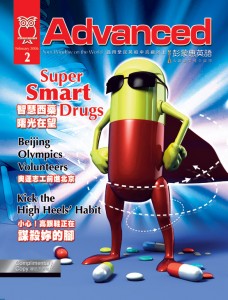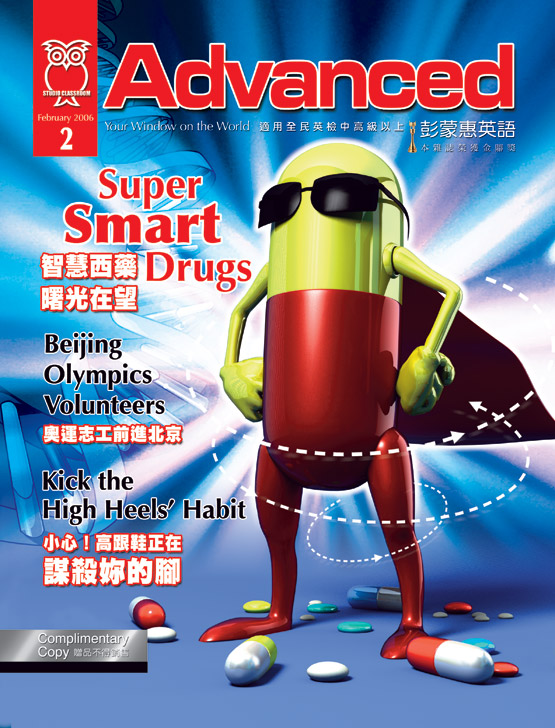Are Smart Drugs Safe? Fair?
 Falling asleep in class is no new obstacle to college students today. The classes can swell to as many as 200 students which provides handy camouflage to safely doze off, there’s still only one teacher, and the seats are usually more comfortable than those hardback plastic ones in high school. Even if you’re one of the few (very few) people who have never fallen asleep in lecture, you may find yourself spending most of the class surfing Facebook or talking to friends on AIM. Distractions abound when you own a laptop, and it can be really hard to focus your attention on the professor so you can take notes. But just one second… what if there was a pill you could take to fix all that? A pill that could help you learn and pay attention better? A drug to help you earn better grades and in doing so, go farther with your college education?
Falling asleep in class is no new obstacle to college students today. The classes can swell to as many as 200 students which provides handy camouflage to safely doze off, there’s still only one teacher, and the seats are usually more comfortable than those hardback plastic ones in high school. Even if you’re one of the few (very few) people who have never fallen asleep in lecture, you may find yourself spending most of the class surfing Facebook or talking to friends on AIM. Distractions abound when you own a laptop, and it can be really hard to focus your attention on the professor so you can take notes. But just one second… what if there was a pill you could take to fix all that? A pill that could help you learn and pay attention better? A drug to help you earn better grades and in doing so, go farther with your college education?
It sounds tempting. And as you may know, there are already many drugs out in the market today that can do that. These drugs are known as nootropics, or cognitive enhancers. Ritalin is a more commonly known pill given to children thought to have ADD or ADHD so that they may focus better. Many students use drugs like Modafinil to counter the effects of jet lag and handle crucial and demanding intellectual challenges. So no, there is no super pill that will turn you into a learning and note-taking addict for the next four to six hours. Not yet. But there are still drugs out there today that can create something of that effect. The question that comes to mind is, is it fair to use these in a school setting? And more importantly, is it safe?
Many concerns arise when referring to the fairness of using cognitive-enhancing drugs in school. Some students can’t afford them. Others may be opposed to them and can be fated to perform academically worse than their pill-popping peers. Allison Leis, a second-year international studies major at UC Irvine, believes these to be needless concerns. “If you think about it, it’s pretty much like caffeine,” she says. “Is it fair that there’s a Starbucks on campus that helps some kids stay up all night before finals, when there are other kids who can’t afford the over-priced coffee?” Indeed, the issue of fairness seems to be redundant when discussing a non-competitive situation. The use of cognitive-enhancing drugs is a choice, not to cheat but for personal success. Yes, students would love something to help them concentrate during midterms and finals, but one student’s success- whether fueled by pills or good old-fashioned sleep- doesn’t have any effect on another student’s chances of succeeding. If a student pops a couple Adderall to gain a few more hours of study time in a quarter, then so be it, no one gets hurt. Not right away that is, which is what brings up the other major concern of using these drugs on a regular basis: is it safe, and should universities ban their use?
Unless you have an addictive personality, it’s not that easy to become addicted to prescription and over-the-counter drugs. Yet the use of these drugs is growing larger and larger, and the minimum age group using them becoming younger and younger. Now it doesn’t seem so harmless, does it? Our society has evolved more or less perfectly fine without having to rely on drugs merely to concentrate in class; if children today were to grow up using Ritalin to focus or Tylenol PM to fall asleep, they’ll grow up unable to function without these drugs. This is, by textbook definition, an addiction, and one that can affect an entire generation. Another concern addresses the result of simple function of these drugs, which is to prolong consciousness, focus attention, relax nerves, all so that people may work and learn more efficiently. Many people are afraid of these drugs creating a 24/7 overworked, tense society. Parents may feel pressure to give their own children these drugs if they hear that other children are using them. And then there’s the whole deal of these kids growing up with the side effects of cognitive enhancers. The long-term effects of many drugs on healthy individuals, such as Modafinil, have not been monitored, and drugs like Ritalin have been known to create social inhibition and an overly reserved demeanor over a prolonged use.
As for the safety of using cognitive enhancers, the simple rule of “everything in moderation” applies, just like it always does. While focusing in class and retaining material better is something every student wants, they must be careful about where they find their help. The occasional pill to keep you up through the night or help you focus while studying is fine, but you shouldn’t have to rely on it just to pass your classes. And if universities did ban these cognitive enhancers it could mean all sorts of obnoxious results; drug tests before SATs and college entrance exams, maybe even finals and midterms, backpack checks and body searches in classes, just one more cause for people to protest about, etc. Solomon Pantuch, a second-year poli-sci/business major, brings another point to light. “There should be no ban…” he states. “If we want to stimulate our minds with over-the-counter medicine, then why not? If they ban nootropics, then what next?” If schools ban the use of something perfectly legal and non-addictive in a non-competitive environment, what will they ban next? Coffee? Laptops? And of course, the best way to make people start wanting something is to make it inaccessible to them. Marijuana and alcohol are easy examples of this.
As long as people keep their heads on straight, the use of cognitive enhancers should never become an issue. People just need to remember: everything in moderation, don’t raise your kids on pills, and learn to pass class without relying on drugs like people have been doing generations before you.
~Tinct
Comments? Leave your intelligent feedback down below or consider following CollegeTimes on Facebook or Twitter to stay updated or to get in touch!
Share This Story:
Please scroll down to leave a comment.

Great submit, very informative. I wonder why the other experts of this sector don’t understand this. You must proceed your writing. I am confident, you have a great readers’ base already!|What’s Going down i’m new to this, I stumbled upon this I’ve discovered It positively useful and it has helped me out loads. I hope to give a contribution & aid different users like its aided me. Great job.
http://cdn.smosh.com/smosh-pit/062010/haters-20.jpg
Don’t be such a narc Scumbag Alert. We just wanna excel in our classes by any means necessary. Haters gonna hate.
Brunner Markus says:
Hi, if anyone needs Ritalin
just send a mail to
[email protected]
best regards
Markus
Ritalin is a prescription only drug, this a*****e claims to be offering it illegaly, assuming it’s not a hoax the moderators of this site need to deal with this.
Hi, if anyone needs Ritalin
just send a mail to
[email protected]
best regards
Markus
——————————————————————-
Quick, discrete & trustworthy – your professional Ritalin partner.
There is no such thing as a “safe” drug, all drugs impact upon the body in different ways and as all bodies are different no one can honestly say this will do x for you because of the uniqueness of each person, also as your body is constantly changing due to age exercise age enviroment, etc, you can’t even honestly say that the drug will do the same for you each time. You most also note that regardless of quality control it is quite simply impossible to exactly replicate quality of ingredients and exact percentages os each ingredient.
As far as it being fair for some to have enhancers and others not, then I would say no, one reason is that it is like the cheats who buy thesis’s from other people, it gives a false reading on what you really are, second, if you are so sure that you need these drugs to boost your abilities, then you should reconsider you career, but more importantly is this, if you can’t do your tests without drugs to help, then what use are you when it comes to getting a job in your chosen field. I for one sure as hell don’t want a docter near my family if the only way they could get their certificate was by being on drugs, and I definatly don’t want on whose on them whilst dealing with my family, same goes for pilots, drivers, nuclear technitions, etc.
Not really.
A lot of what you eat or have eaten constitutes you.
This is no different, so to say it gives a false reading of you is a bit misleading.